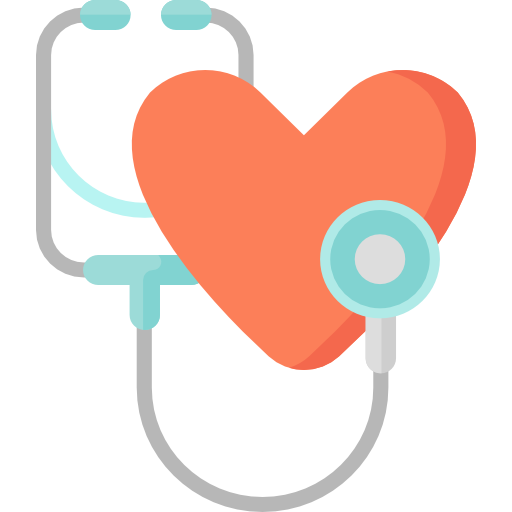Hypertension, also known as high blood pressure, is a condition where the force of the blood against the artery wall is too strong. High blood pressure damages cells in your arteries by making the lining thinner. As a result, blood struggles to pass through your vessels smoothly.
Two factors determine blood pressure. You may have noticed that the blood pressure monitor that wraps around your arm displays a reading that contains a top number and another on the bottom. The number at the top measures the pressure in the arteries every time the heart pumps, and the bottom number measures the pressure in the arteries between beats.
Having uncontrolled high blood pressure can put you at risk for many other health conditions. However, it can be tricky to realize you have hypertension unless your blood pressure is high for an extended amount of time. Often, there are no noticeable symptoms other than high blood pressure readings. Hypertension tends to worsen with age and is essential to promptly treat as it can eventually cause other health concerns if left unmanaged.
Pathophysiology and Risk Factors
The amount of pressure with which your blood flows through your body is determined by how much blood your heart pumps with each stroke (beat) and how much resistance the blood encounters as it flows through your vessels. People with high blood pressure usually pump a normal amount of blood per beat but, for some reason, their blood vessels provide more resistance for the blood flow than usual.
In many cases, hypertension has no known cause ("essential hypertension"). However, the following factors are known to place you at an increased risk of developing this condition:
- Diabetes - Approximately 6 out of 10 patients with diabetes also struggle with high blood pressure. High sugar content in the blood can make it more viscous and difficult for your heart to pump.
- Poor diet - Too much salt leads to dehydration, which causes less blood volume so that your heart cannot pump as efficiently.
- Lack of exercise - A sedentary lifestyle can lead to overall poor cardiac health.
- High cholesterol - Too much cholesterol will cause the formation of plaques in your blood vessels. These narrow and harden your vessels, making it more difficult for blood to flow through them.
- Genetics - Hypertension and cardiac disease can have a familial component.
- Excessive alcohol consumption - This can lead to dehydration and less blood volume, so your heart has to work harder.
- Age - The risk of hypertension increases as you age, with women being more likely to develop it by the age of 65 than men.
- Consuming tobacco - Nicotine causes your heart to beat faster and your blood vessels to narrow, increasing blood pressure.
- Stress - This can increase your heart rate leading to high blood pressure. It can also contribute to poor diet, lack of exercise, and alcohol and tobacco use.
- Other medical conditions such as kidney disease and sleep apnea affect other body systems that interplay with the circulatory system.






